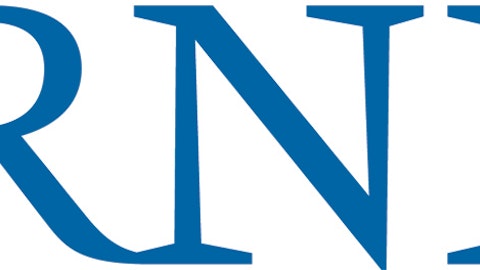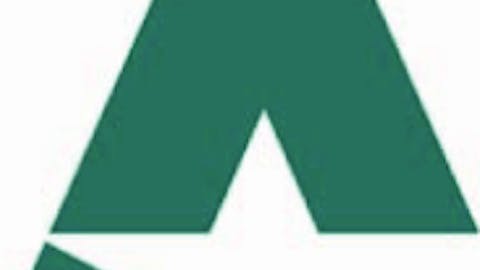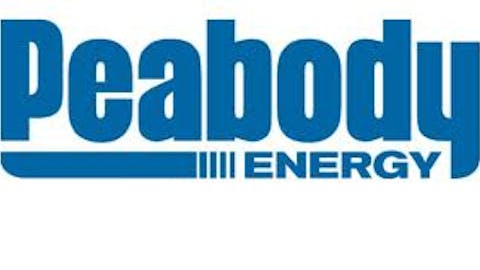As first-quarter earnings hit a midpoint, I can’t help but point out that the majority of earnings reports we’ve covered over the past year have been better than expected. With so many companies reporting during the weeks that comprise earnings season, it’s easy for some earnings reports to fall through the cracks.

| Company | Consensus EPS | Reported EPS | Surprise |
|---|---|---|---|
| Alpha Natural Resources, Inc. (NYSE:ANR) | ($0.55) | ($0.19) | 65% |
| Avon Products, Inc. (NYSE:AVP) | $0.27 | $0.37 | 37% |
| Rackspace Hosting, Inc. (NYSE:RAX) | $0.22 | $0.21 | (5%) |
Source: Yahoo! Finance.
Alpha Natural Resources
Don’t call it a comeback just yet, but coal companies don’t appear to be in as bad a shape as was previously thought. Alpha Natural Resources, the largest U.S. producer of metallurgical coal used to strengthen steel, is the perfect example of this trend.
For the quarter, Alpha Natural reported a much smaller adjusted loss of $0.19 due to massive cost-cutting (including job losses totaling 9% of its workforce) as revenue fell by a not-so-pretty 25%. However, between the two forms of coal — thermal, used by utilities, and metallurgical, used to strengthen steel — metallurgical seems more likely to rebound the quickest given China’s huge infrastructure development plan announced in September and the rapid rebound in the domestic housing market.
One area where Alpha Natural Resources and rival Peabody Energy Corporation (NYSE:BTU) , which also handily crushed Wall Street’s estimates in the fourth quarter, are excelling in is the met-coal export department. According to Peabody, seaborne spot metallurgical prices are up 15%-20% from their lows of third-quarter 2012 and Chinese steel demand rose 9% in the fourth quarter. Both figures signify a strengthening export market to Asia and should be supportive of stable or rising met-coal prices, as well as increasing demand.
Domestically, a ramp-up in homebuilding, evidenced by reduced inventories in the housing market, should be good news for Alpha Natural Resources. Understandably, this won’t be a quick turnaround, but it appears to be on the right track.
Avon Products
There’s not nearly enough foundation in Avon’s product bag that it could use to cover up its lack of actual growth!
On the surface, yes, Avon absolutely crushed Wall Street’s expectations by $0.10. It also instilled confidence in investors that it’ll focus on its core beauty products business by looking at strategic alternatives for its Silpada jewelry business and removing itself from the South Korean and Vietnam markets by 2015 in order to save $400 million annually.
Besides these key points, it was really more of the same for Avon. Revenue dropped 1% to $2.96 billion as beauty product sales dropped 2% and non-GAAP margins decreased 130 basis points. What I found more disturbing was that the number of active representatives actually rose by 1%, yet, accounting for negative currency translations, sales fell by an aforementioned 1%. Even if you exclude the currency translations, why should I, in my right mind, be excited about 1% growth? Avon turned down a buyout offer from Coty at an extremely hefty premium last year and still boasts $2 billion in net debt, down just $77 million over the previous 12-month period. If you remove the pounds of makeup, this is actually a very ugly investment.
Rackspace
Just last month I warned investors that the valuation on open-cloud specialist Rackspace might be a little aggressive — it didn’t take but six weeks to prove my point.
For the recently ended quarter, Rackspace reported a 25% increase in year-over-year revenue to $353 million as profit grew 19% to $30 million. Unfortunately, the market wasn’t in a forgiving mood and the Street had expected Rackspace to report $355.4 million in revenue. Although the miss may seem as trivial as VMware, Inc. (NYSE:VMW)‘s, which I highlighted two weeks ago, it nonetheless pointed to a fifth straight quarter of declining sales growth.
VMware, which runs private cloud-based enterprise software, and Rackspace, which deploys its own open-cloud software that doesn’t tie its enterprise customers to one specific vendor, both noted that their results struggled as they transition to their next-generation software. What this means for investors of both VMware and Rackspace is that they can expect slower growth in the interim as these transitions are made.
For VMware, I saw this as an opportune time to cash in on a company still growing healthfully in the double digits and valued at just 21 times forward earnings and 16 times cash flow. For Rackspace, it looks like another reason to run for the exits. Even after its huge drop, Rackspace is valued at 49 times forward earnings and 22 times cash flow. This also doesn’t factor in the potential psychological concerns enterprises may have about an open-cloud platform across multiple vendors. Keep in mind I’m not implying that Rackspace in any way has a security problem, but the perception that one could arise in an open-cloud space is another reason that I’d keep my distance for the time being.
The article 3 Earnings Reports That Caught My Attention Last Week originally appeared on Fool.com and is written by Sean Williams.
Fool contributor Sean Williams has no material interest in any companies mentioned in this article. You can follow him on CAPS under the screen name TMFUltraLong, track every pick he makes under the screen name TrackUltraLong, and check him out on Twitter, where he goes by the handle @TMFUltraLong.The Motley Fool owns shares of VMware. Motley Fool newsletter services have recommended buying shares of Rackspace Hosting and VMware.
Copyright © 1995 – 2013 The Motley Fool, LLC. All rights reserved. The Motley Fool has a disclosure policy.





